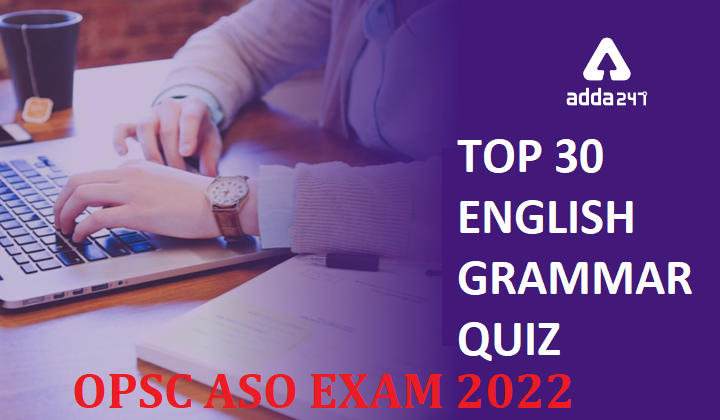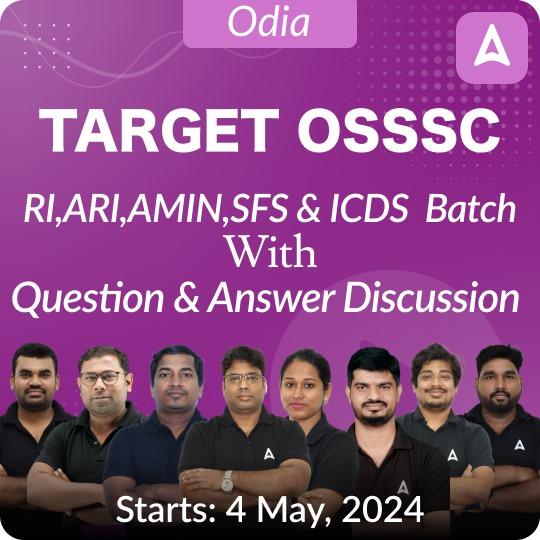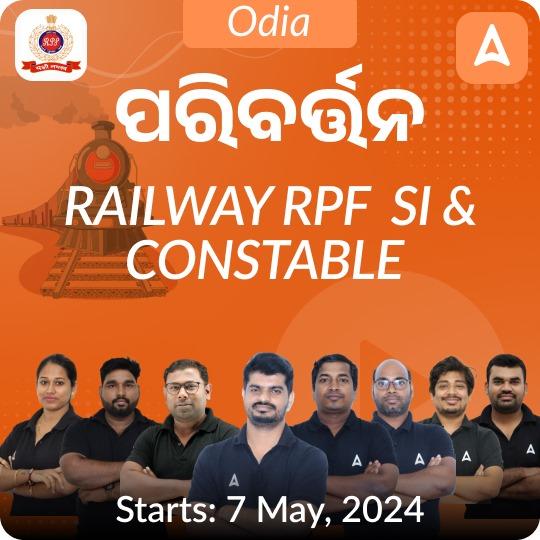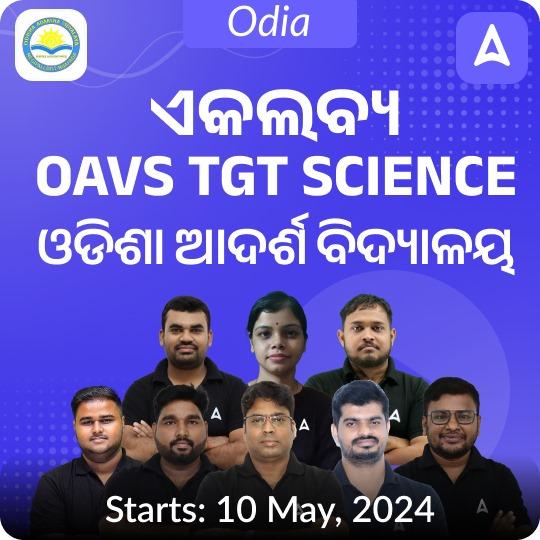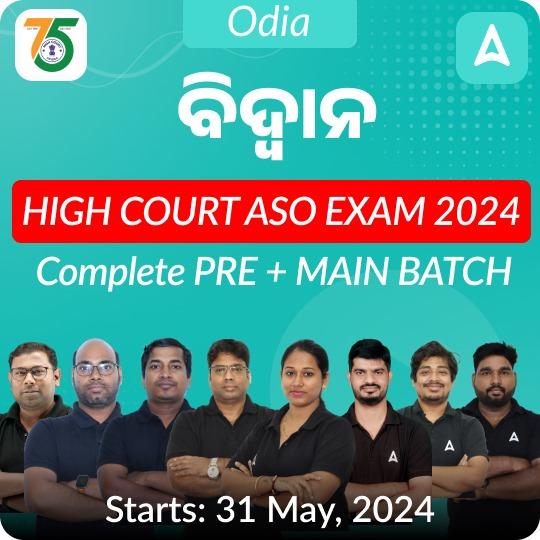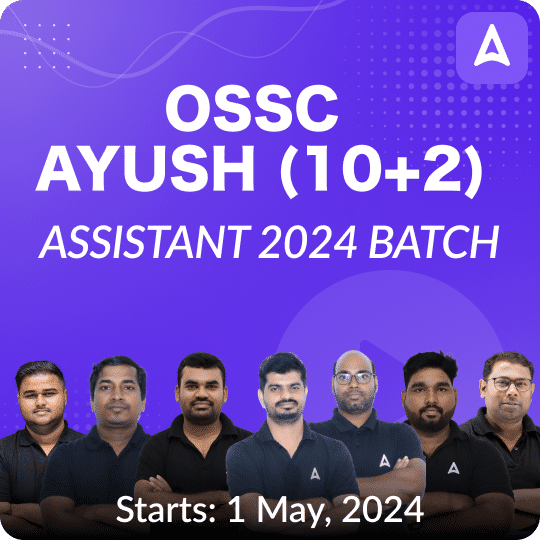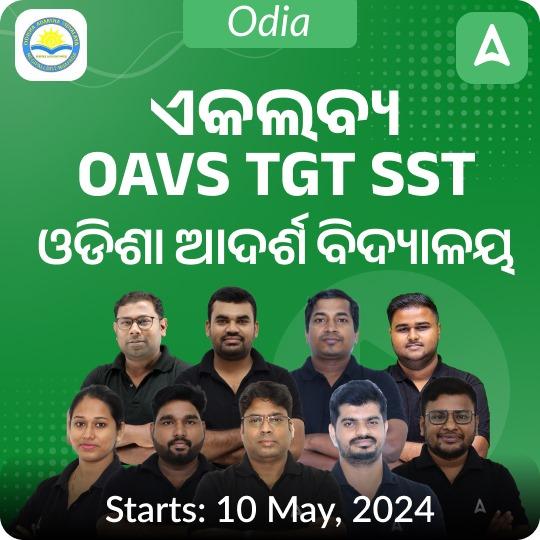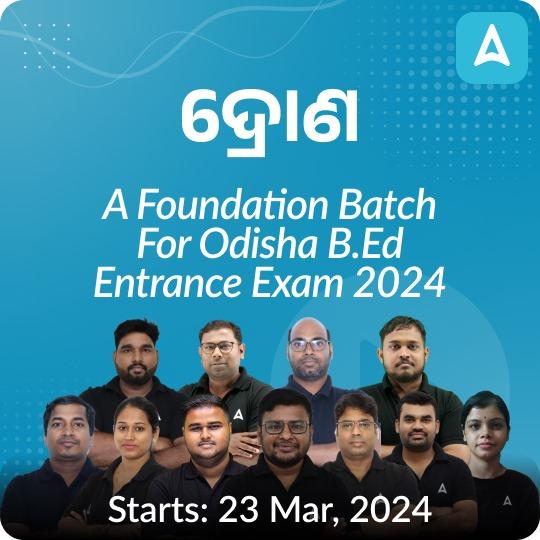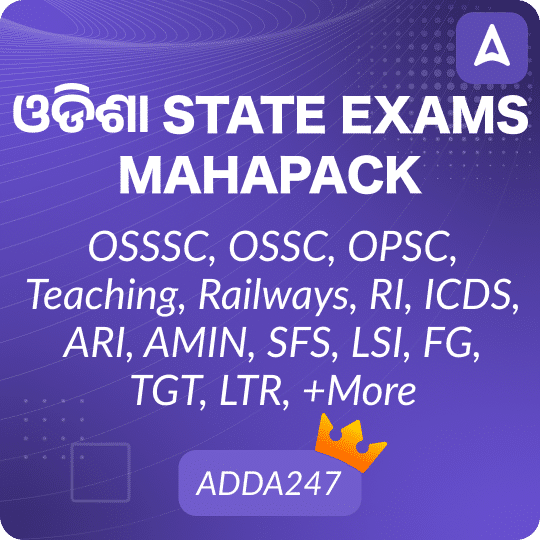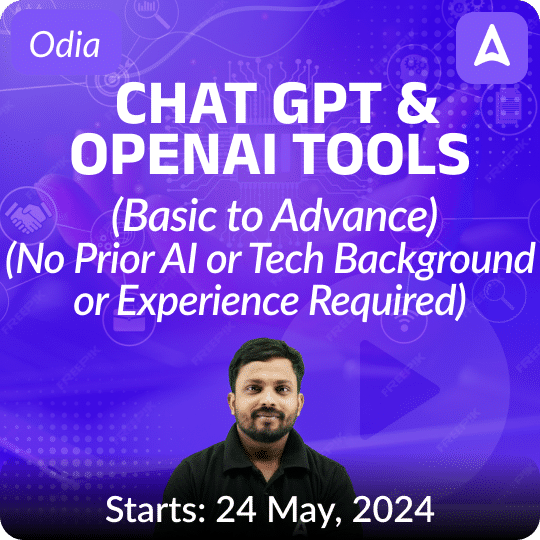Today we are sharing you English 30 MCQ and Answers. This is very useful for upcoming exams like OPSC, OSSC, OSSSC, and other common written exams.In the following questions, some part of the sentence may have errors. Find out which part of the sentence has an error and select the appropriate option. If a sentence is free from error, select ‘No Error’.
Q1. In emerging economies the private credit market (A)/ remains highly segmented and thus (B)/ weaken power of monetary policy. (C)/ No error (D).
(a) A
(b) B
(c) C
(d) D
Ans. (c)
Sol. Use ‘weakens’ in place of ‘weaken’. The subject is singular so singular verb will be used.
Q2. Ten new members (A)/have been enrolled (B)/and seven have resigned. (C)/No error (D).
(a) A
(b) B
(c) C
(d) D
Ans. (d)
Sol. The given sentence is grammatically correct.
Q3. Wholesome strategic planning was the focus as (A)/ the firm manage through a difficult period (B)/ a couple of years ago.(C)/No error(D).
(a) A
(b) B
(c) C
(d) D
S3. Ans. (b)
Sol. Use ‘managed’ in place of ‘manage’ as the sentence is in past tense.
Q4. In spite of the best governmental efforts, (A)/ emission of green-house gases (B)/ and noxious chemicals remain a cause of worry.(C)/No error (D).
(a) A
(b) B
(c) C
(d) D
S4. Ans. (c)
Sol. Use ‘remains’ in place of ‘remain’ as the subject ‘emission’ being discussed is Singular.
Q5. The rate of metabolism of (A)/ a body is comparatively lowest when (B)/ it is at rest and is thus optimum for examination.(C)/No error (D).
(a) A
(b) B
(c) C
(d) D
S5. Ans. (b)
Sol. Use ‘lower’ in place of ‘lowest’. ‘Comparative degree of adjective’ is used after ‘comparatively’.
Q6. He lent me some money on the condition (A)/ that I should return the same (B)/before November. (C)/No Error (D)
(a) A
(b) B
(c) C
(d) D
S6. Ans. (d)
Sol. “The same” is used as a pronoun as well.
We use the same to refer to something that has previously been mentioned or suggested.
E.g.-We made the decision which was right for us. Other parents must do the same.
“The same and it” both are correct but they can’t replace each other to make sentence more grammatically correct.
Q7. Under no circumstances (A)/ have I harmed (B)/ him, and he knows. (C)/ No Error. (D)
(a) A
(b) B
(c) C
(d) D
S7. Ans. (c)
Sol. ‘It’ should be used after ‘knows’.
Q8. The beggar (A)/ whom we had suspected (B)/ to be guilty turned out to be innocent. (C)/ No Error. (D)
(a) A
(b) B
(c) C
(d) D
S8. Ans. (d)
Sol. No correction is required.
Q9. The candidate (A)/ being a graduate he is eligible for (B)/ the post of Probationary Officer. (C)/ No Error. (D)
(a) A
(b) B
(c) C
(d) D
S9. Ans. (b)
Sol. The use of ‘he’ is superfluous here as the subject is ‘The candidate’ and therefore ‘he’ will not be used to avoid redundancy.
Q10. I don’t appreciate (A)/those who laugh (B)/at others without any apparent reason. (C)/ No Error. (D)
(a) A
(b) B
(c) C
(d) D
S10. Ans. (d)
Sol. No correction is required
Q11. The results of the survey were fairly disappointing.
(a) The results of
(b) No error
(c) the survey were
(d) fairly disappointing.
S11. Ans.(c)
Sol. Fairly (adverb): honestly; in a fairly and reasonable way.
Hence, very/rather disappointing is the right usage.
Q12. In such delicate matters, we often go with his advice as he has been handling such cases effectively.
(a) In such delicate matters, we often go
(b) with his advice as he
(c) has been handling such cases effectively.
(d) No error
S12. Ans.(d)
Sol. No error
Q13. Let us vie to one another in doing good.
(a) Let us vie
(b) No error
(c) to one another
(d) in doing good.
S13. Ans.(c)
Sol. Vie: to compete
Vie takes prepositions
with- (with somebody)
for – for something
to– to do something
Hence ‘with one another’ is the right usage.
Q14. It took her a long time to get off the death of her husband.
(a) It took her a long time
(b) of her husband.
(c) No error
(d) to get off the death
S14. Ans.(d)
Sol. Get off: to fall asleep; to leave work without permission; to stop discussing a particular subject.
Get over: to return to your usual state of health, happiness after a shock.
Hence ‘to get over’ should be used.
Q15. The number of applications has risen this year by as many as 50%.
(a) The number of applications
(b) has risen this year
(c) by as many as 50%.
(d) No error
S15. Ans.(d)
Sol. No error
‘The number of + ‘Plural noun’ + ‘singular verb’.
Q16. Being apprised with our approach, the whole neighbourhood came out to meet the minister.
(a) the whole neighbourhood
(b) came out to meet the minister.
(c) Being apprised with our approach,
(d) No error
S16. Ans.(c)
Sol. Use ‘of’ in place of ‘with’. ‘Of’ is the correct preposition to use with ‘apprise’.
Q17. Few creature outwit the fox in Aesop’s Fables.
(a) Few creature
(b) outwit the fox
(c) in Aesop’s Fables.
(d) No error
S17. Ans.(a)
Sol. Replace ‘creature’ with ‘creatures’. Few takes plural noun with it.
Q18. Except for few days in a year during the monsoon the river cannot flow on its own.
(a) Except for few days in a year
(b) during the monsoon the river
(c) cannot flow on its own.
(d) No error
S18. Ans.(a)
Sol. Replace ‘few’ with ‘a few’. ‘A few’ is used in positive sense. It means at least some.
Q19. This hardly won liberty was not to be lightly abandoned.
(a) was not to be
(b) This hardly won liberty
(c) No error
(d) lightly abandoned.
S19. Ans(b)
Sol. Replace ‘hardly’ with ‘hard’.
Q20. India won by an innings and three runs.
(a) India won by
(b) No error
(c) an innings
(d) and three runs.
S20. Ans.(b)
Sol. No error
Q21. Today the cost of living (A)/ is so high that many people (B)/ find it difficult to make ends meet. (C)/No error (D)
(a) A
(b) B
(c) C
(d) D
S21. Ans.(d)
Sol. No error
Q22. Vipul has been (A)/suffering from fever(B)/since seven days.(C)/No error(D)
(a) A
(b) B
(c) C
(d) D
S22. Ans.(c)
Sol. ‘Seven days’ is a duration, thus for the duration “for” is used and for the point of time “since” is used.
Q23. As soon as (A)/I reach my office (B)/I will mail you the files.(C)/No Error (D)
(a) A
(b) B
(c) C
(d) D
S23. Ans.(d)
Sol. No error
Q24. I am certain that (A)/the officer is not only(B)/greedy but corrupt. (C)/No error(D)
(a) A
(b) B
(c) C
(d) D
S24. Ans.(c)
Sol. “Not only……but also” is the correct conjunction pair. Thus “also” should be used after “but”.
Q25. Priya got good grades (A)/not in Hindi essay (B)/but also in arithmetic. (C)/No error(D)
(a) A
(b) B
(c) C
(d) D
S25. Ans.(b)
Sol. “Not only ……but also” is used in a pair. Thus, in part (b) ‘not only’ should be used.
Q26. I told to the coach (A)/that I wouldn’t be able(B)/to come for the practice. (C)/No error(D)
(a) A
(b) B
(c) C
(d) D
S26. Ans.(a)
Sol. “Tell” is a transitive verb. Thus, it takes the direct object with it and thus “to” should be taken off.
Q27. Soon as he (A)/saw the policeman, (B)/ he ran away. (C)/No error(D)
(a) A
(b) B
(c) C
(d) D
S27. Ans.(a)
Sol. “As soon as” is a conjunction which should be used here.
Q28. In summer, the ponds (A)/ just dry down (B)/ in the scorching heat (C)/ No error (D)
(a) A
(b) B
(c) C
(d) D
S28. Ans.(b)
Sol. “Dry down” should be replaced with “dry”, because “dry down” means the most persistent or lingering element of a fragrance, remaining after the perfume has dried on the skin.
Thus, “dry down” does not go with the context.
Q29. There is renewed sense(A)/of urgency in(B)/completing the project. (C)/No error(D)
(a) A
(b) B
(c) C
(d) D
S29. Ans.(a)
Sol. ‘Sense’ is a countable noun thus before that we need to use an article. Definite article will not be used before “sense” as it has not been mentioned before, thus “a” indefinite article will be used.
Q30. You must not (A)/look down into(B)/parents’ advice. (C)/No error(D)
(a) A
(b) B
(c) C
(d) D
S30. Ans.(b)
Sol. “Look down upon” means to disregard someone. Thus “look down” should be changed to “look down upon”.

